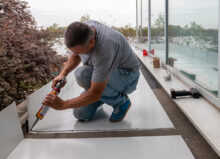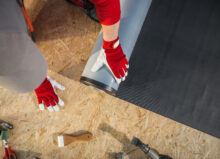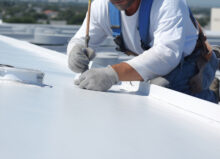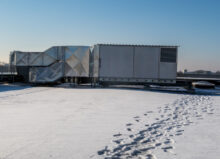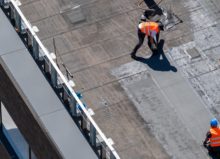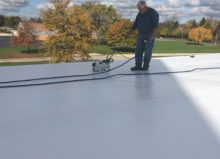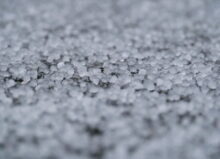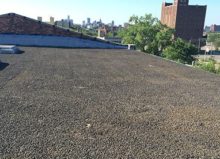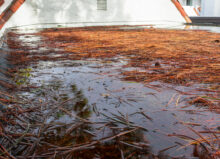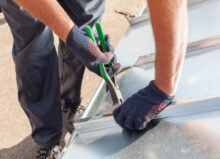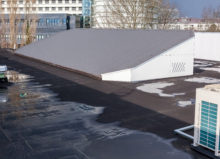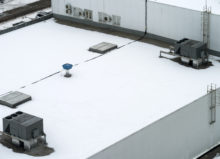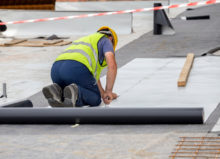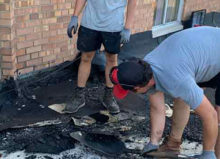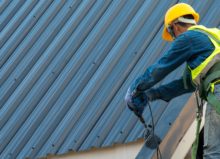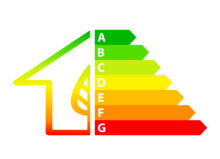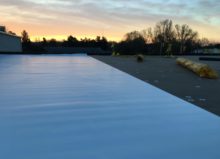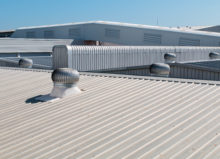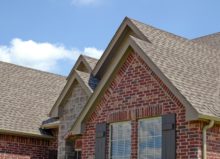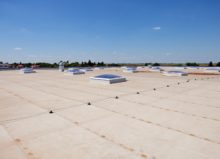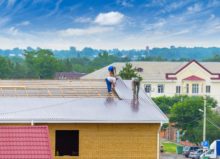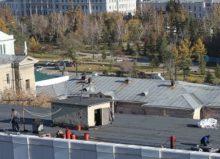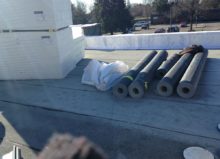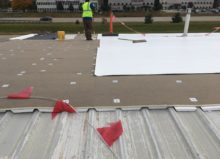How Much Does a Commercial Roof Replacement Cost?
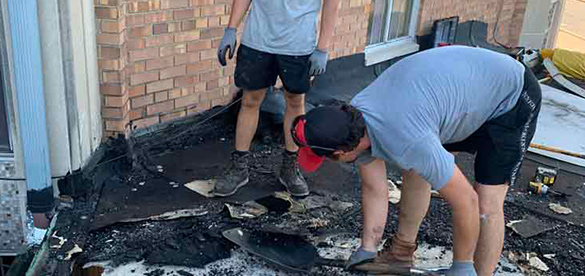
As a business owner, you’ve got a lot on your plate when it comes to managing costs and providing for the long-term health of your company. When you evaluate a major expenditure such as a new roof, you need to know what kind of investment you’re making.
Generally speaking, a new commercial flat roof can cost anywhere from $3.50 to $13.50 per square foot, primarily determined by the various factors that we’ll cover below.
Factors Affecting Cost
Roof Size
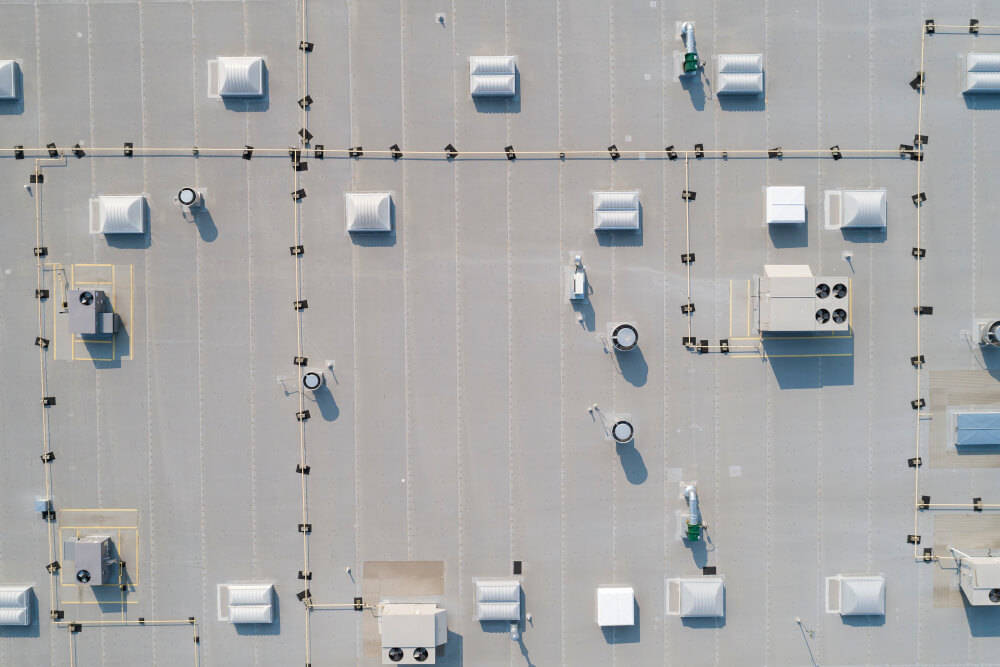
Arguably, the biggest factor that influences roof cost is the size of your roof. The bigger your roof, the more you’ll pay for materials and labor. In addition to roof size, another factor that can add to the expense of your next replacement is the number of slopes the roof has. While most commercial roofs are flat or low slope, there may be some exceptions. A steeper roof has a larger surface area, so more roofing materials would be required, thus increasing the cost. Labor costs may also increase because steeper slopes are more challenging and hazardous for roofers.
Type of Roofing Material
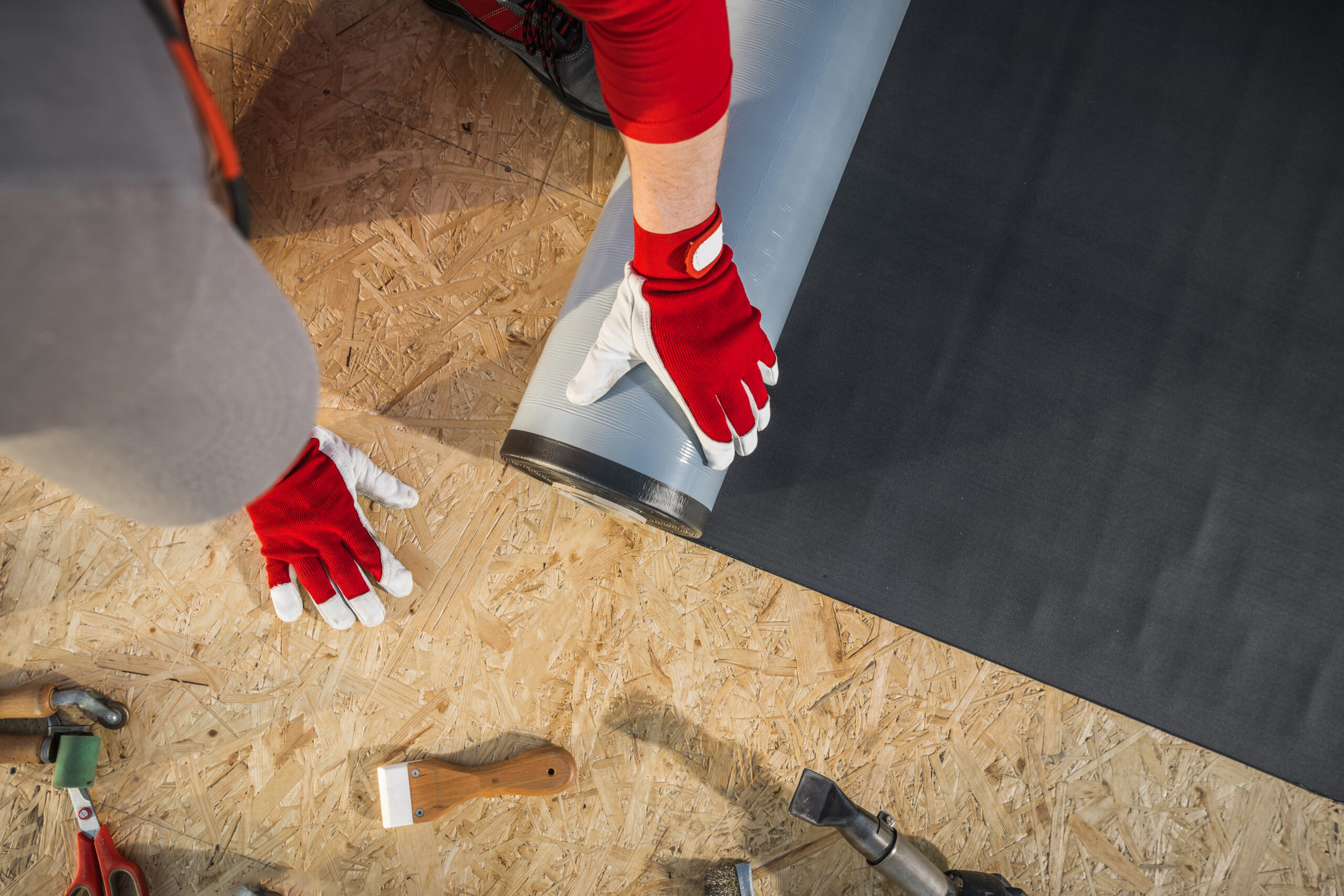
Outside of the size of your roof, the type of roofing material you opt for will significantly impact the cost of your replacement. Some of the more popular materials include:
- EPDM: EPDM, or Ethylene Propylene Diene Monomer, is a rubber-like roof that’s as versatile as it is cost-effective. It’s fairly easy to install, which helps with labor costs, and can last more than 25 years with proper maintenance.
- TPO: TPO, or Thermoplastic Polyolefin, is a single-ply membrane that’s both durable and economical. It can last for upwards of 30 years when properly maintained, but this material is relatively new to the market, so its lifespan is still uncertain.
- PVC: PVC, or Polyvinyl Chloride, is durable, long-lasting, and has excellent resistance to high temperatures. These roofs can last up to 40 years but tend to have a higher upfront cost than TPO and EPDM.
- BUR: Built-up roofing (BUR) includes layers of asphalt between ply sheets on the roof deck. These roofs tend to be long-lasting and require little maintenance, but they are more complex and more expensive to install than other options.
- Modified Bitumen: Modified bitumen is flexible and durable. These roofs are made from asphalt that has been reinforced with fiberglass and polymers. Like BUR and PVC, modified bitumen tends to be a more expensive roofing option.
- Metal: Metal roofs are among the longest-lasting roofs you can install. In fact, they have the potential to last for up to 80 years if they’re installed correctly and properly maintained. Metal roofs are strong, able to endure severe weather, and are impact-resistant. However, they are the more expensive option in terms of upfront cost.
When selecting the roofing material for your replacement, make sure to weigh all of your options, take the time to understand how the material is sourced, and evaluate the brands your contractor uses, as these can all have an impact on the cost of the replacement.
Your Existing System
One of the factors that many property managers overlook when it comes to a roof replacement is how accessible their roof is and whether there are any measures the contractor will have to take to ensure they can access it safely. If the contractor has to enact certain extra logistical measures or bring in extra equipment to ensure they can work safely and/or efficiently, it’s likely to result in a higher replacement cost. Some of the considerations that could play a factor include:
- Building height
- Ease of roof access
- Space for storing materials
- Need for specialized equipment
Local Jurisdiction Requirements
Local building, contracting, and zoning laws dictate requirements for details such as underlying structures, materials, substrate, ventilation, slope, and application methods.
These codes are drafted to ensure that roofs are constructed to withstand typical weather and environmental hazards in a particular region. That usually results in specific fire resistance, wind load, and impact resistance requirements, which are typically broken down into specific rules for each type of roofing materials and the types of fasteners that must be used in construction. Some local codes are incredibly complex, spelling out different regulations according to building height. The specificity of these codes requires diligence and expert knowledge by professional commercial roofers.
Labor Costs
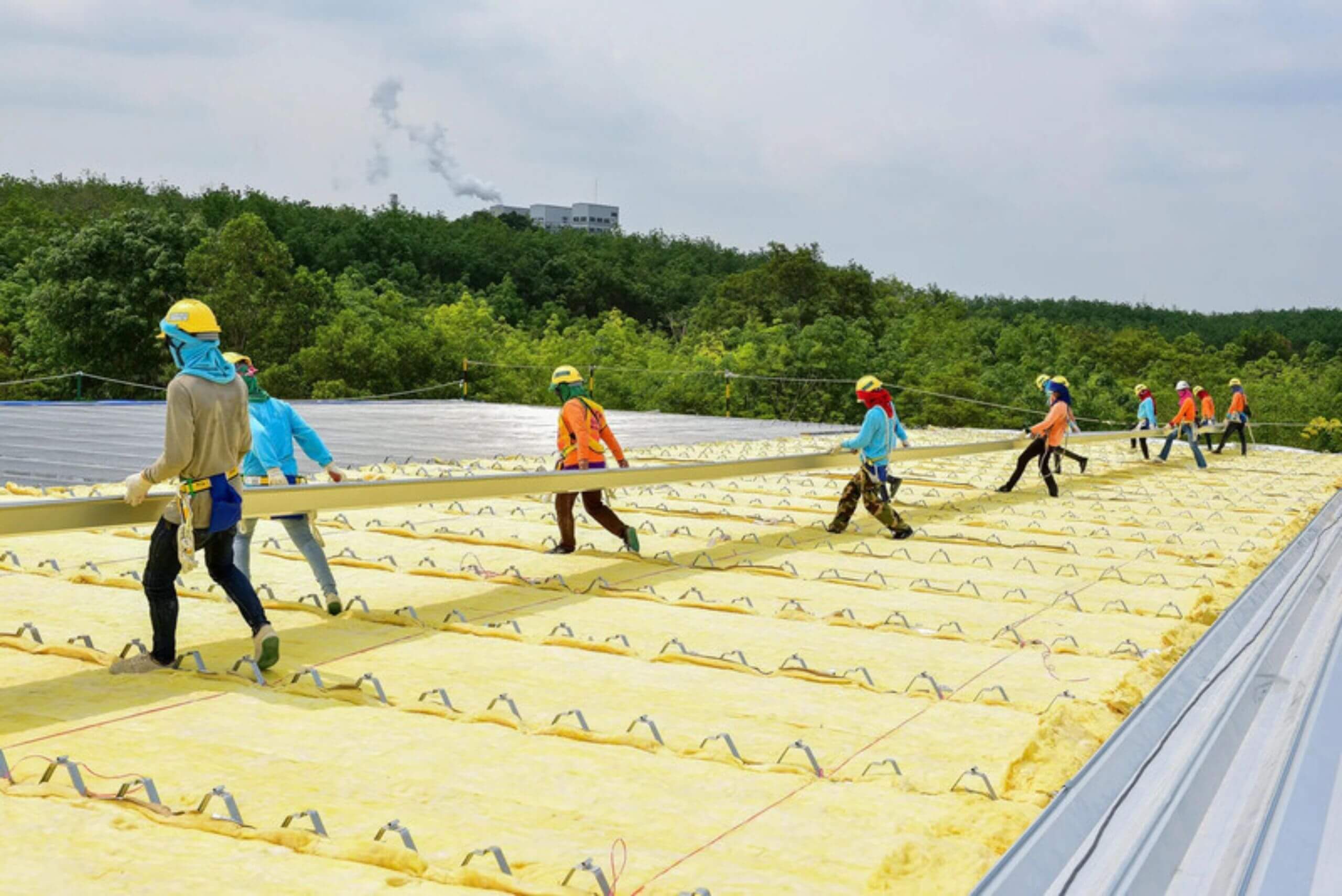
Labor costs will vary from roofing company to roofing company. We’ve already explained some of the factors that impact labor costs, but to reiterate here, the size and accessibility of your roof, the complexity of the job, and the type of roofing material being installed are all factors that can potentially increase the cost of a roof replacement.
Time of Year
While roofing work can be done year-round, some seasons are more expensive. The spring and summer seasons tend to be more costly for roofing work because there’s more demand for such services because the weather is more favorable. Because of the increase in demand, there’s often an increase in labor costs and potentially even material costs.
The fall and winter seasons tend to be considered the slow season for roofing work because demand is usually less during months when the weather conditions are less favorable. As a result, some roofing companies may offer better prices to entice customers.
Structural Repairs
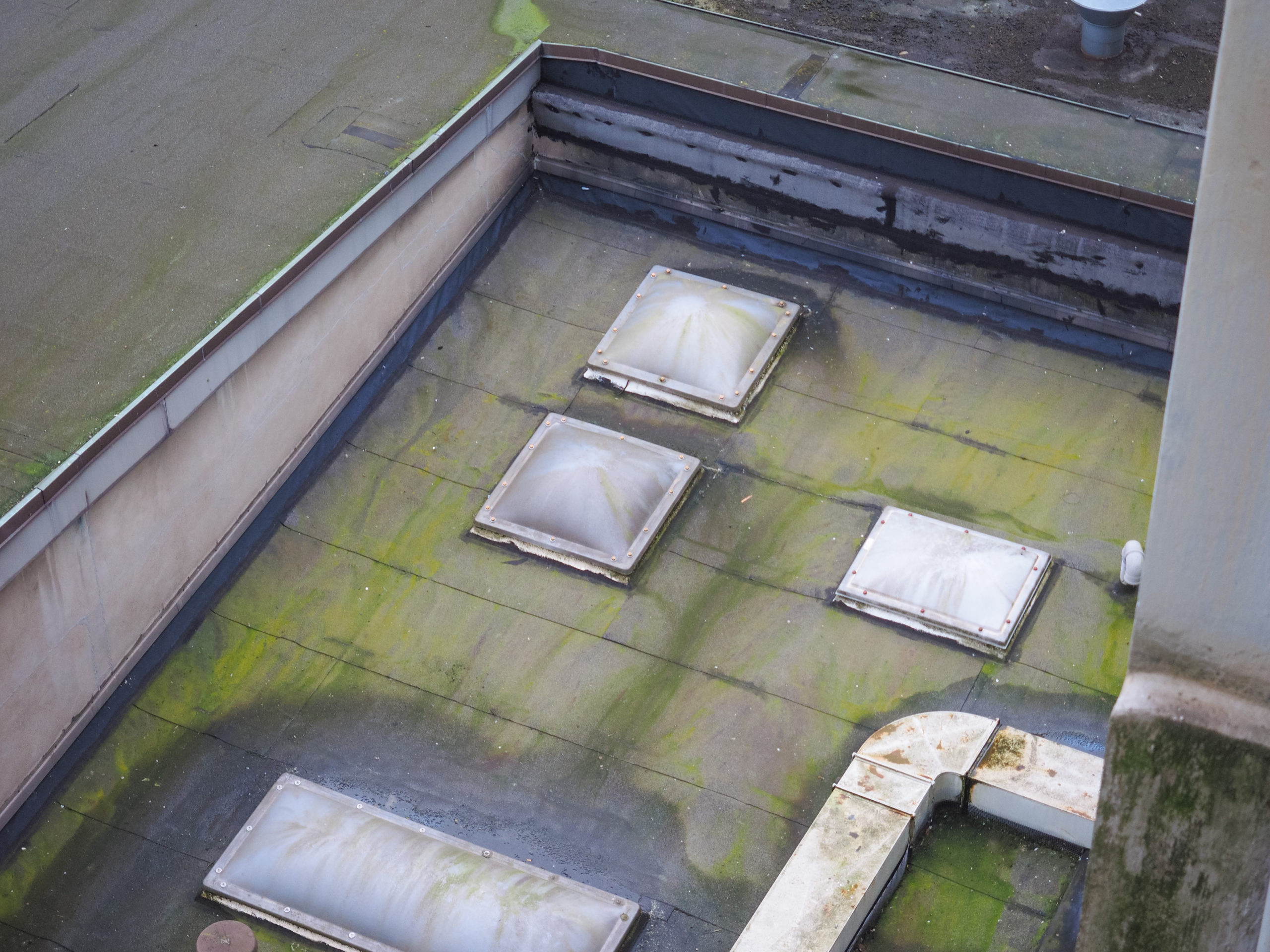
While roofing companies can catch most issues with a visual inspection, there are some cases where structural problems, like roof deck rot, mold growth, trapped moisture, and issues with substrate materials, are uncovered during the actual replacement. If these types of issues are discovered, they need to be addressed before the work can progress, which ultimately adds to the replacement cost.
Type of Replacement
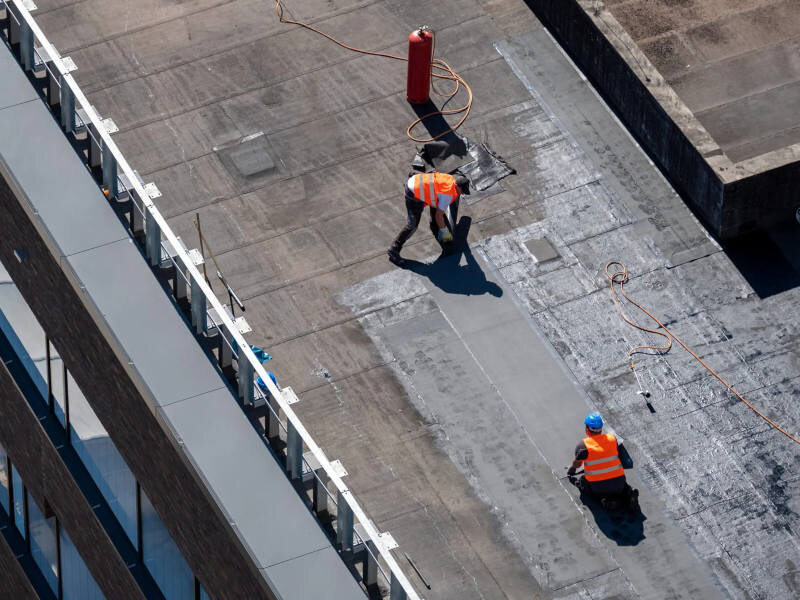
The two most common types of roofing replacements are tear-offs and re-roofing. A tear-off removes the existing roof completely and replaces it with all new materials, while re-roofing involves installing a new roof over the existing roof.
As you can imagine, tear-offs are more costly than re-roofing because the process is more labor intensive and also involves material disposal. The benefit of tear-offs is that they can help uncover structural issues mentioned in the section above and ensure they’re addressed before they worsen.
Additional Hidden Costs to Consider
Beyond the various factors that we’ve covered throughout this post, you may also run into certain hidden or unexpected costs, including:
- Disposal and removal fees (such as with tear-offs).
- Weather-related delays.
- Unexpected damage identified during a tear-off (such as the issues covered in the ‘Structural Repair’s section).
- Roof material upgrades.
The best way to avoid hidden costs is to ensure you’re working with an honest contractor (easier said than done), but some costs (like structural damage and weather delays) can’t be predicted, so it’s worth budgeting for some of these extra costs, just in case. When discussing your project with a contractor, ask them about expected costs for structural repairs and how they handle weather delays, and provide an itemized quote.
Get a Quote Today
There’s a lot to a roof replacement. Although most business owners (like yourself) need a better idea of cost, it’s hard to predict without knowing the full scope of work.
To better understand how much your roof replacement will cost, contact Summit Commercial Roofing today to schedule an assessment. We’ll provide you with a detailed quote and an estimated timeline of completion.
ABOUT SUMMIT COMMERCIAL ROOFING
Summit Commercial Roofing is a family-owned and -operated roofing company specializing in commercial flat roof work throughout southeast Michigan. We have over 50 years of experience repairing and replacing all types of flat roofs, including metal, PVC, and EPDM, and are proud members of the Construction Association of Michigan, Midwest Roofing Contractors Association, and National Roofing Contractors Association.

